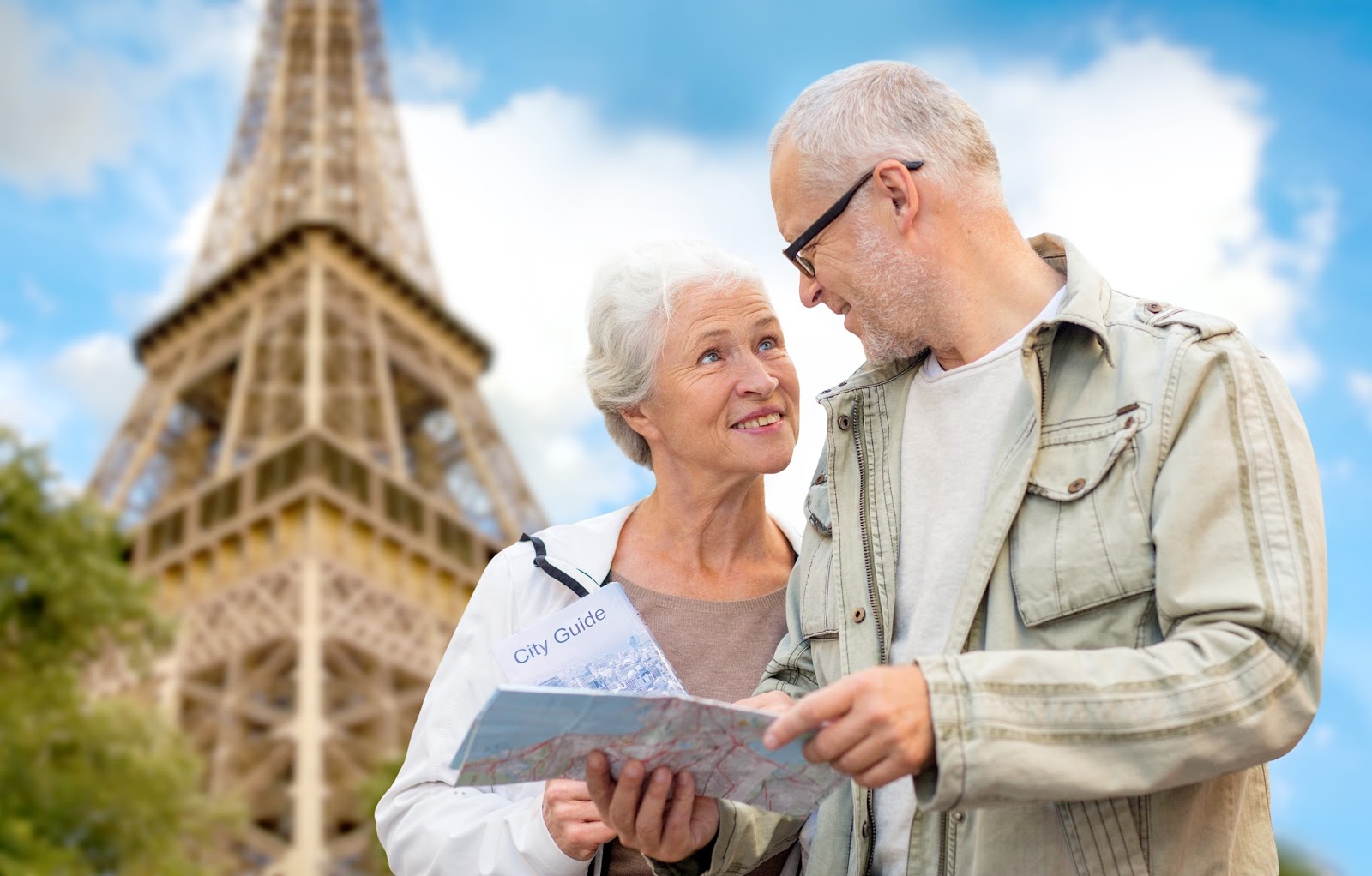Senior woman traveling alone: A growing trend challenges perceptions of age and independence. This exploration delves into the practicalities, safety considerations, and enriching experiences awaiting older women embarking on solo journeys. From meticulous planning and securing travel insurance to navigating cultural nuances and embracing technological tools, we uncover the keys to a fulfilling and secure adventure.
This comprehensive guide addresses common concerns, offering solutions for potential challenges and highlighting the immense rewards of independent travel for senior women. We examine everything from budget-friendly options and accessible accommodations to strategies for managing health concerns and staying connected with loved ones while abroad.
Planning and Logistics: Senior Woman Traveling Alone
Planning a solo trip for a senior woman requires careful consideration of pace, accessibility, and personal interests to ensure a safe and enjoyable experience. This involves meticulous preparation across various aspects, from itinerary design to securing appropriate travel documents and accommodations. Thorough planning minimizes stress and maximizes the enjoyment of the trip.
Sample One-Week Itinerary: Charleston, South Carolina
This itinerary prioritizes a manageable pace with options for relaxation and cultural exploration, suitable for a senior traveler. Charleston offers a blend of history, charm, and accessibility features.Day 1: Arrive in Charleston, check into an accessible hotel near the historic district. Afternoon: Gentle stroll along the waterfront, enjoying the views. Evening: Dinner at a restaurant with outdoor seating.Day 2: Guided walking tour of the historic district, focusing on key landmarks accessible via paved walkways.
Afternoon: Relaxation at the hotel or a leisurely carriage ride. Evening: Attend a historical performance or enjoy live music at a local venue.Day 3: Visit Rainbow Row, taking photos of the colorful historic houses. Afternoon: Explore Charleston City Market for unique souvenirs. Evening: Enjoy a delicious Southern meal.Day 4: Day trip to Fort Sumter (consider accessibility options beforehand).
Afternoon: Relax by the pool or explore a local park. Evening: Enjoy a quiet dinner at the hotel or a nearby restaurant.Day 5: Visit Drayton Hall Plantation, exploring the grounds at a comfortable pace. Afternoon: Enjoy a relaxing afternoon tea. Evening: Attend a cooking class focusing on Southern cuisine.Day 6: Explore the Gibbes Museum of Art, focusing on exhibits of interest.
Afternoon: Shopping at local boutiques. Evening: Farewell dinner at a fine-dining restaurant.Day 7: Depart from Charleston.
Booking Flights, Accommodations, and Transportation
Booking flights, accommodations, and transportation should prioritize ease of use and accessibility features. Consider using online travel agencies with robust search filters for accessibility options, such as wheelchair-accessible rooms or larger bathrooms. For flights, selecting airlines known for their senior-friendly services and booking aisle seats for easier mobility is advisable. Pre-booking airport wheelchair assistance is crucial for those who require it.
Transportation within the destination city can be planned using ride-sharing services with accessibility options or local public transport with accessible routes. Researching and booking transportation in advance minimizes stress and ensures a smooth travel experience.
Find out further about the benefits of retirement travel ideas that can provide significant benefits.
Essential Travel Documents and Packing Recommendations, Senior woman traveling alone
Senior women traveling alone should carry a comprehensive set of documents. This includes a valid passport or driver’s license, copies of travel itineraries, flight confirmations, hotel reservations, and travel insurance information. A detailed medical history, including a list of medications and allergies, should also be carried, along with contact information for emergency contacts. Packing should prioritize comfort and practicality.
Comfortable walking shoes, lightweight clothing suitable for varying weather conditions, and any necessary medical equipment should be included. A small, lightweight backpack is useful for carrying essentials during day trips. Consider packing versatile clothing items that can be mixed and matched to minimize the amount of luggage. A first-aid kit with essential medications and supplies is also highly recommended.
Social and Cultural Experiences

Solo travel offers senior women unique opportunities for personal growth and enriching experiences. Embracing the independence allows for deeper engagement with local cultures and the chance to forge unexpected connections. The key lies in proactive planning and a willingness to step outside one’s comfort zone.Successful social interaction hinges on a blend of preparation and spontaneity. While pre-booked tours provide structure and companionship, unscheduled encounters often lead to the most memorable moments.
Opportunities for Social Interaction
Senior women traveling alone can find ample opportunities for social interaction. Joining walking tours provides a ready-made group with shared interests. Participating in cooking classes or art workshops fosters connections through shared activities. Staying in guesthouses or smaller hotels often leads to more informal interactions with hosts and other guests. Volunteering for a few hours at a local charity can provide a rewarding experience and meaningful connections with the community.
Utilizing social media groups dedicated to solo female travelers can facilitate connections before and during a trip, providing opportunities to meet up with others in the same location. Many senior centers offer international travel programs or partnerships with local organizations, making it easier to find structured social events.
Enriching Cultural Experiences for Senior Travelers
Cultural immersion for senior travelers should prioritize accessibility and personal interests. For history buffs, a guided tour of a historical site with comfortable pacing and accessible features is ideal. For art enthusiasts, visiting museums with accessible entrances and seating arrangements is crucial. For nature lovers, a scenic train journey or a boat tour offering accessible boarding and comfortable seating are options.
Choosing destinations with well-maintained infrastructure and readily available transportation ensures a smooth and enjoyable experience. Many destinations offer specialized tours catered to senior travelers, often featuring slower paces, shorter walking distances, and convenient transportation arrangements. For example, a slow-paced walking tour of a charming Italian village, focusing on local artisans and culinary experiences, could be a perfect choice for a senior traveler with an interest in culture and food.
Overcoming Loneliness and Isolation
Combating feelings of loneliness while traveling solo requires proactive strategies. Staying connected with loved ones through regular phone calls or video chats can maintain a sense of normalcy. Engaging in daily journaling can help process emotions and experiences. Participating in local activities and events provides opportunities for interaction and a sense of belonging. Joining a book club or other social group before the trip can provide a sense of community.
Learning basic phrases in the local language can facilitate interactions with locals. Remembering to schedule some downtime and prioritize self-care, such as reading a book in a quiet café or enjoying a relaxing spa treatment, can prevent feelings of overwhelm and promote well-being. Planning activities that involve interacting with people, even in small ways, such as striking up conversations with shopkeepers or fellow travelers, can help combat feelings of isolation.
Accommodations and Accessibility
Solo female travel for senior citizens requires careful consideration of accommodation choices, prioritizing safety and accessibility. The right lodging can significantly enhance the overall travel experience, while the wrong choice can create unnecessary challenges and risks. Choosing accommodations should be a proactive process, not an afterthought.Choosing the right accommodation is paramount for a safe and enjoyable trip for senior women traveling alone.
Several factors, including accessibility features and location, significantly impact the overall experience. A balance between comfort, safety, and ease of access is crucial.
Types of Accommodations and Accessibility Features
The range of accommodation options caters to diverse needs and preferences. Hotels, guesthouses, vacation rentals, and assisted living facilities each offer varying levels of accessibility and safety features. Hotels often provide accessible rooms with features like roll-in showers, grab bars, and wider doorways. Guesthouses may offer a more personalized experience, but accessibility features can vary greatly depending on the establishment.
Vacation rentals can offer more space and flexibility, but require careful vetting to ensure accessibility needs are met. Assisted living facilities provide comprehensive support, including 24/7 assistance, but are typically more expensive and less flexible in terms of travel arrangements. When considering safety, hotels with well-lit areas, secure entrances, and readily available staff are preferable. Guesthouses and vacation rentals may require more independent assessment of the local area’s safety.
Accessible Transportation Options
Accessing suitable transportation is crucial for independent travel. Wheelchair-accessible taxis and ride-sharing services are increasingly common in many cities. Public transportation systems in some areas offer accessible buses and trains with ramps or lifts. However, it’s vital to research the specific accessibility features of the chosen transportation options beforehand, as availability can vary significantly depending on location and route.
For example, researching the accessibility features of a specific train line or bus route before booking can prevent unexpected delays or inconveniences. Pre-booking accessible transportation, particularly for airport transfers, is strongly recommended to avoid last-minute difficulties.
Importance of Pre-Booking Research
Thorough research before booking accommodations is non-negotiable. Websites and review platforms often feature detailed descriptions of accessibility features, including photos and guest reviews. Contacting the accommodation directly to confirm accessibility features and ask specific questions about any concerns is also advisable. For example, confirming the presence of grab bars in the bathroom or the width of doorways can prevent potential issues.
Ignoring this crucial step can lead to significant problems, including the need for last-minute changes or even cancellation of the trip. Direct communication ensures that expectations are managed effectively and that any potential problems are addressed proactively.
Ultimately, the journey of a senior woman traveling alone is a testament to personal resilience and a thirst for exploration. By carefully planning, prioritizing safety, and embracing the unexpected, older women can unlock a world of enriching experiences, fostering personal growth and creating lasting memories. This guide serves as a roadmap, empowering women to confidently embark on their solo adventures, knowing they are well-equipped to navigate the path ahead.


